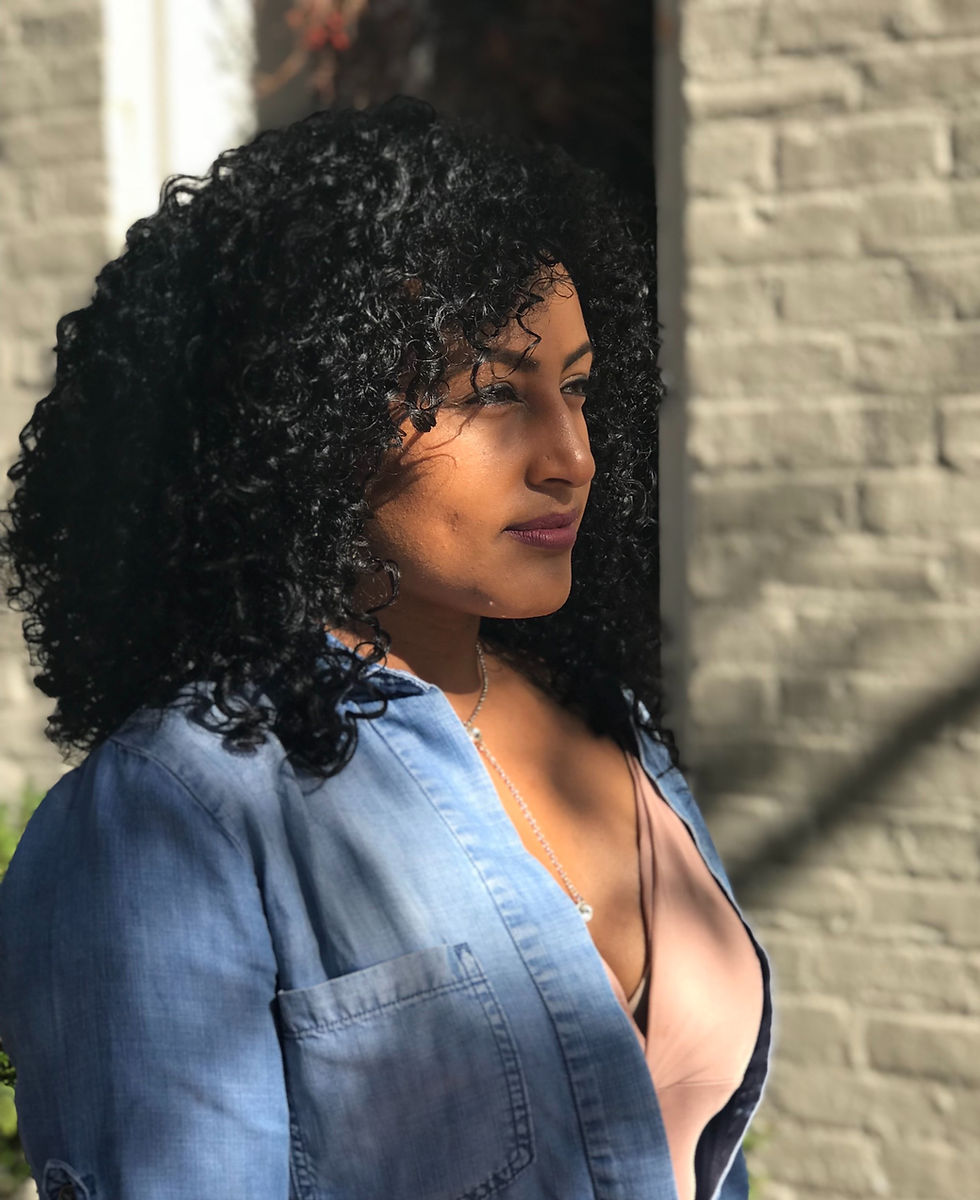The Language of Unchaining
- Tiemert Shimelis Letike
- Apr 22, 2023
- 4 min read
One of my coaching clients presented a difficult topic for us to work on in our last session. Her son was awaiting what could have been a devastating diagnosis from the family pediatrician. My client had confided in a dear friend upon receiving the news. The friend, who has had a difficult start of the year herself instructed her to be strong and not catastrophize the situation and to "not cry and make me cry because you know I have been through worse things".
Don't get me started on my opinions on such advice giving by people unable to listen empathetically. My job as a coach is not to judge but to draw my client's attention to their own experience and teach them how to understand and validate it for themselves. In this process, more often than not, I hit a brick wall with linguistic expression of whatever experience that they may be having. The most interesting thing about it all is that most of my clients are actually bilingual, with two pools of expressive languages to draw words from.
Being bilingual is a flex. Yes, I said it.
Multilingualism has been shown to have many social, psychological and lifestyle advantages. More so, researchers are finding an array of health benefits from speaking more than one language, including faster stroke recovery and delayed onset of dementia.
Yes, speaking more than one language will help you live and age better. You may stop reading now. But no, go on.
Whether you speak 4 languages fluently or one, the truth is that the brain loves words, it soaks them up. They are how it becomes aware of itself and others that affirm its identity, how it finds its place in a big whole, how it finds vitality. It's how it makes sense of the world around it, takes in information and digests emotions, assimilates core beliefs and if the need and the will present themselves simultaneously, changes its mind. Pun intended.

This is the thing though, while I have benefited so much from being bilingual and a lover of words ( even financially as as a court, hospital and community interpreter) , language remained my deficiency and a reason I stayed chained emotionally and psychologically.
With little to no training in identifying and naming the range of human emotions I was meant to experience, I remained a stranger to my own experiences. My mother's tongue, Amharic, offered me limited vocabulary to go with my lack of understanding. Happy, sad or mad were where I revolved, with strong aversion towards the later two and anything outside of them was severely judged and rejected. In me and in others.
So I have come to believe that no matter how many languages you speak your functional emotional intelligence, the muscle you utilize to live a fulfilled life, heavily depends on weather or not you have taught yourself the language of Unchaining.
Over the years, my lack of said muscle manifested in disintegration within and without, severe mental illness, dysfunctional relationships and an overall sense of hopelessness in life.
What I found out as I healed is that while I spoke two languages fluently, even wrote and recited poetry, I was deficient in my awareness and validation of the full range of my experiences as a human being.
I lived in dread but didn't know when I was feeling it, resentment was a friend of mine but never called it out, envy took over me more times than I had the capacity recall, I felt jealous but simply mistook it for anger and suppressed it. I mushed shame and guilt together and crumbled, unable to resolve either. Belonging and fitting in felt the same so I slaved for both, exhausting myself. So many more mistakes, ignorant mislabeling, opportunities missed to communicate with myself and others just exactly what was happening would land me in psych wards, drive me over the edge to give up on continuing to live.
So I had to go back to the beginning. Unchaining language 101 if you will. Therapy opened the doors but countless books, podcasts, Ted-talks, seminars, coaching school, coaching for myself, coaching clients. I gathered over the years a medicine cabinet full of healing expression and the muscle to validate my experiences grew alongside it.
For my client, we found that the word "rattled" came close to describing the 'dread' she felt upon hearing her son's potential diagnosis. (The diagnosis would never come and her son will be OK) We worked through the limiting beliefs that prevented her from validating her own experiences in this snapshot of her unchaining journey. Her energy shift was contagious. Her open minded coach-ability always inspires me.
How about you? What's REALLY going on inside you and how do you go about understanding, validating, communicating it and if need be, resolving the waves that arise within and around you? Just how big is your emotional vocabulary? Has being bilingual benefited you more than make your resume interesting? How has it added to your unchaining? What experiences do you frequent in your patterns that you would really like to dissect and get to the bottom of?
One of the many tools that transformed my unchaining vocabulary is Brenè Brown's Atlas of The Heart. In it, more than 87 emotions are described and gathered into 13 land masses each labeled as a destination: " Places We go When we Compare", for example, or " Places We Go When It's Beyond Us". Anyone relates?" This book also happens to be our first pick for the Unchainers Book Club at the Mighty Networks community.
Will you join and go to class with us? We would love to learn and Unchain with you!
With love,
Tiemert







Comments